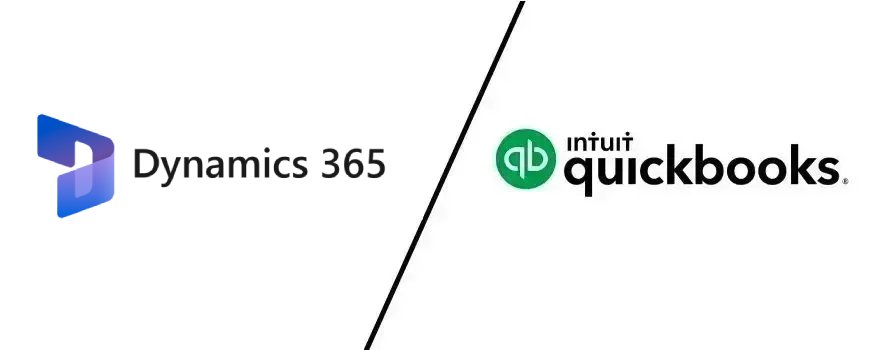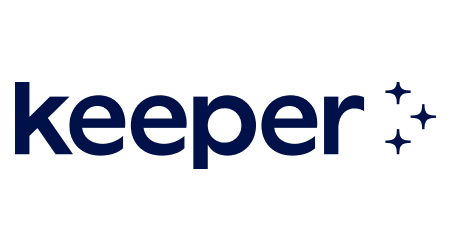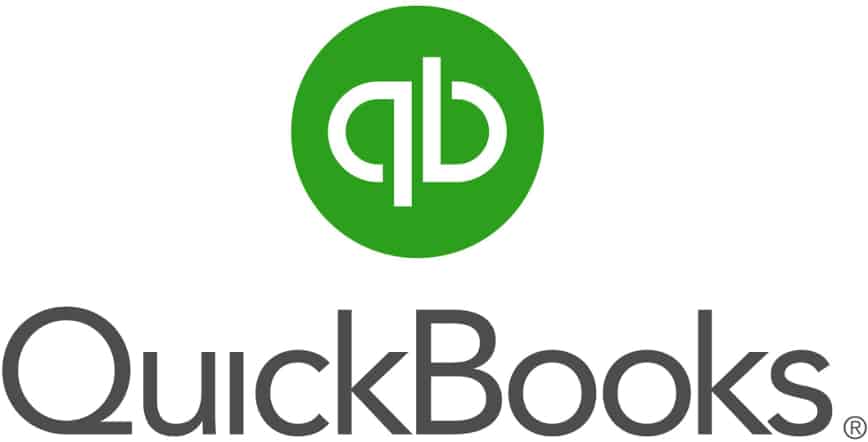
Picking the appropriate application to oversee finances is of the greatest significance in the hectic and aggressive modern corporate environment. Dynamics 365 by Microsoft and QuickBooks are two popular software programs that are often looked at as potential options. This article presents an extensive discussion of the similarities and differences between the Microsoft Dynamics Vs QuickBooks software suites, focusing on the most crucial elements of each.
Introduction: Microsoft Dynamics Vs QuickBooks
Microsoft Dynamics
The Enterprise Resource Planning (ERP) and CRM (Customer Relationship Management) applications that make up Microsoft Dynamics form an all-encompassing component of the Microsoft Dynamics software package. Because it offers a wide variety of solutions that may be adapted to a variety of enterprise types and sizes, it is an appealing choice for companies that are looking for complete systems for finance, revenue management, logistics oversight, and support for customers.
You May Also Compare
Choose what is right for you! Compare Keeper Tax with QuickBooks to keep your business running!
View All FeaturesQuickBooks
Intuit’s QuickBooks is the name most frequently linked with the company’s line of financial software. It serves the demands of companies of all kinds, from sole traders and start-ups to midsize and large corporations. Accounting activities are made easier with QuickBooks, which also provides customers with assistance with overseeing their accounts, maintaining tabs on their costs, producing bills, and putting together financial documentation.
Features: Microsoft Dynamics Vs QuickBooks

| Microsoft Dynamics | QuickBooks |
| Scalability | Ease of Use |
| Customization | Affordability |
| Multi-Channel Sales | Invoicing |
| Global Operations | Expense Tracking |
| Cloud and On-Premises Deployment | Reporting |
Comparison: Microsoft Dynamics vs QuickBooks | ||
| Business Focus: Major companies that have refined requirements for sectors such as managing clients, logistics control, and finance are good prospects for Microsoft Dynamics. QuickBooks is well suited for usage for companies of a size that ranges from small to medium that are primarily concerned with simplifying their financial and accounting processes. | Scalability: Microsoft Dynamics is incredibly flexible, indicating that it is capable of supporting enterprises of different kinds while remaining adaptable to future expansion. Due to its restricted scalability, QuickBooks is ideally appropriate for use by businesses of all sizes that anticipate little to no expansion. | Customization: With the plenty of options for customization offered by Microsoft Dynamics, the application may be fitted to a multitude of distinct business processes. QuickBooks has an increasingly conventional approach and provides less options for customization than Dynamics. |
| Ease of Use: Because of its complete nature, Microsoft Dynamics has a more difficult instruction curve than its competitors. QuickBooks is respected for its accessibility and ease of acceptance, thereby making the program available to users who have just grasped the fundamentals of accounting. | Global Operations: Microsoft Dynamics, with assistance for a number of languages and currencies, was developed expressly to facilitate managing multinational companies easier. Businesses who carry out a majority of their activities on the local or national level find that QuickBooks works best for them. | |
Pros & Cons: Microsoft Dynamics vs QuickBooks
Microsoft Dynamics Pros and Cons

Pros | Cons |
| Comprehensive Business Solution: Microsoft Dynamics has an entire set of capabilities for both business resource planning and management of customer relations, making it an ideal choice for any size of company. It provides an elaborate approach to regulate every one of the facets of corporate operations. | Complexity: Due to the complete complexity of Microsoft Dynamics, the process of learning is more tricky, and users may be needed to take substantial retraining. |
| Scalability: Scalability signifies that it is capable of handling the requirements of startups, mid-sized corporations, and massive enterprises, which guarantees that your company continues to retain its flexibility as it expands. | Higher Cost: Because of its often higher installation and maintenance costs, Microsoft Dynamics tends to be less accessible to startups that have a limited amount of cash. |
| Customization: Microsoft Dynamics offers numerous kinds of customization choices, which enables firms to adapt the application to the particular procedures and procedures used in what they do. | Resource Intensive: It may take an enormous quantity of time as well as finances to manage and maintain Microsoft Dynamics, leading to the need for particular assistance from IT. |
| Global Operations Support: It is able to cope with worldwide operations due to characteristics such as the capability to accommodate numerous currencies and multiple languages, thereby rendering it easier to branch out into foreign markets. | Integration Challenges: Even while it presents connectivity possibilities, more particular integrations may need more development labour and expenses. |
| Deployment Flexibility: Users have the possibility of deploying the application on-premises or in the cloud, permitting them the freedom to combine the product with the data technology infrastructure that finest suits their requirements. |
Microsoft Dynamics Pros and Cons

Pros | Cons |
| Simple Interface: QuickBooks is praised for having a simple design, thereby rendering the software approachable to anyone with any levels of financial understanding. | Limited Scalability: QuickBooks, although offering for certain modifications, has less options for flexibility versus Microsoft Dynamics. Because of this, it can prove difficult for enterprises to use QuickBooks if they have methods that are specific to their field. |
| Affordability: It provides economical options that can be tailored to the budgetary limitations of small corporations. QuickBooks offers users a variety of pricing plans to select from, resulting in it a good option for newly founded and medium-sized ones. | Less Comprehensive: QuickBooks, in contrast to Microsoft Dynamics, is largely centred on economic and revenue management; yet, it fails to offer the same entire set of functions that Dynamics provides. Consequently, QuickBooks doesn’t seem as extensive as Microsoft Dynamics. |
| Invoicing Simplicity: QuickBooks automates the procedure of billing by permitting users to easily generate and send corporate invoices to clients. This helps to make the billing procedure simpler. This function is particularly useful for companies that rely largely on paying consumers for what they provide. | Limited Customization: QuickBooks, although permitting for some modification, has less choices for modification in contrast with Microsoft Dynamics, which could restrict firms who have procedures that are particular to their industry. |
| Expense Tracking: Within the QuickBooks platform, users enjoy the capacity to easily monitor their spending, connect to their financial accounts, and reconcile all of their transactions. This function guarantees that financial records will be accurate and that accounting will go properly. | |
| Payroll Processing: QuickBooks delivers payroll administration services, which streamlines the chore of dealing with staff remuneration, which may be a challenging and laborious endeavour. This is a highly beneficial function to businesses who have staff. |
Price: Microsoft Dynamics Vs QuickBooks
Microsoft Dynamics
Microsoft Dynamics offers a variety of solutions, such as Dynamics 365 Business Central and Dynamics 365 Finance and Logistics Management. These represent just two of the possibilities available. The cost of Business Central for Dynamics 365 starts approximately $70 per person per month, making it a cost-effective option that is both adaptable and flexible.
QuickBooks
QuickBooks includes multiple editions, including QuickBooks Online, the desktop version, and QuickBooks Self-Employed. The QuickBooks Desktop program is a single buy, with costs ranging from version to edition ( Premier, Pro, or Enterprise) and client count.
- Online Basic Start: Fundamental features for small-scale businesses. Monthly rates begin at $30.
- QuickBooks Online Essentials adds extra tools like bill administration as well as time monitoring. Monthly rates begin at $55.
- QuickBooks Online Plus: Incredible features for expanding enterprises. Monthly rates begin at $85 USD.
Integration: Microsoft Dynamics Vs QuickBooks
Microsoft Dynamics
Microsoft Dynamics is popular for its strong connection features, which permit simple integration with additional Microsoft offerings including SharePoint, Office 365, and Power BI. Through its large network of connections and APIs, it also facilitates connection with a plenty of independent apps and services. Because of this degree of emancipation it is a good option for firms wishing to limit their activities inside the Microsoft ecosystem.
QuickBooks
QuickBooks integrates with a variety of widely used apps & offerings, like Square, PayPal, and Shopify. While the online version of QuickBooks has more connectors than the desktop version, other solutions may be required to reach the identical degree of integration as Microsoft Dynamics. The availability of connections varies depending on the QuickBooks version and affiliation level selected.
Desktop and Mobile Platforms: Microsoft Dynamics Vs QuickBooks
Microsoft Dynamics
Both Microsoft Dynamics Business Central and Dynamics Finance and Logistics Management are cloud-based software that can be accessed through websites on plenty of devices, including personal computers as well as mobile phones and tablets. They provide mobile applications for both Android and iOS smartphones, letting clients access important features and data even while they are disconnected from their computers. Desktop users have the capability of accessing Dynamics through either a web browser or through unique Windows software.
QuickBooks
The QuickBooks Desktop application is a Windows-based program that may be employed on desktop PCs or laptops; however, there is no native mobile version that supports QuickBooks Desktop. On the contrary, QuickBooks Online offers users with a mobile app that is suitable with iOS and Android devices. With this application, clients are able to perform critical functions such as recording costs and generating bills from their cell phones or tablets.
Customer Support: Microsoft Dynamics Vs QuickBooks
Microsoft Dynamics
Microsoft Dynamics clients gain access to a wide range of assistance provided by Microsoft. Help can be provided in a number of methods, including online forums, and personal discussions with customers. Microsoft’s official website offers a plenty of publications, video classes, and other learning resources for its clients. Quite a number of subjects are covered by these resources, from basic installation through intricate customization. Participating in the Microsoft Dynamics forum infrastructure permits user contributors to ask questions, share their expertise, and gain inspiration from one another.
QuickBooks
The company that designed QuickBooks, Intuit, delivers support to users through a number of channels, including phone, chat rooms, messaging, and a readily accessible internet resource. Additionally, plenty of learning resources may be helpful to QuickBooks users to ensure they make the greatest possible use of the software. The vibrant QuickBooks forum gives users a place to ask queries, share suggestions, and work through difficulties they have while operating the software.
Payment Type: Microsoft Dynamics Vs QuickBooks
Microsoft Dynamics
In the majority of cases, Microsoft Dynamics can handle a range of methods of payment, such as EFT, credit cards, and bank deposits. There are also multiple additional methods of payment. The precise ways of payment that you are allowed to use may differ depending on the sort of subscription that you possess, the contract of licence that you have, and the physical place where you live.
QuickBooks
Users are able to make payments for their memberships in a manner that is most appealing to them as QuickBooks offers a variety of payment options. Users have a choice of paying for their QuickBooks licences with major debit or credit cards, or by linking their financial institutions to QuickBooks so that periodic payments may be initiated via those accounts. It is also feasible to use electronic deposits for the processing of payroll in QuickBooks, which makes it smoother for firms to pay their staff.
User Ratings: Microsoft Dynamics Vs QuickBooks
Microsoft Dynamics
A specific edition of a Microsoft Dynamics product and the user experience frequently impact the breadth of ratings provided by clients for that product. Ratings of Microsoft Dynamics 365 tend to be favourable because of its extensive feature established, its ability to integrate with other offerings from Microsoft, and its ability to grow for use in bigger businesses. The user reviews for Dynamics 365 Business Central and Microsoft Dynamics 365 Accounting and Logistics Management might be different due to the fact that the latter product is designed to fulfil the more complicated requirements of companies.
QuickBooks
QuickBooks Online, in specific, earns rave reviews from users due to the clear nature of its visual user interface and the somewhat basic nature of its operation. Users are appreciative of its abilities in terms of accounting and billing, as well as the accessibility of mobile applications. When utilising specific editions of QuickBooks, however, certain individuals may discover that there are restrictions in terms regarding sophisticated statistical analysis and manageability for enterprises of a larger size.
Conclusion
Your company’s scope, complexity, and unique requirements should all be considered prior to making a decision among Microsoft Dynamics and QuickBooks. QuickBooks is a facility to use an accounting software that is appropriate for small to medium-sized organisations, whereas Microsoft Dynamics is an integrated ERP and CRM solution meant for bigger firms with different requirements. Explore evaluation versions of alternatives or receive advice from professionals in the field to make a wise selection that takes into account your monetary constraints, the ability of the system to scale, and the functions you want.

